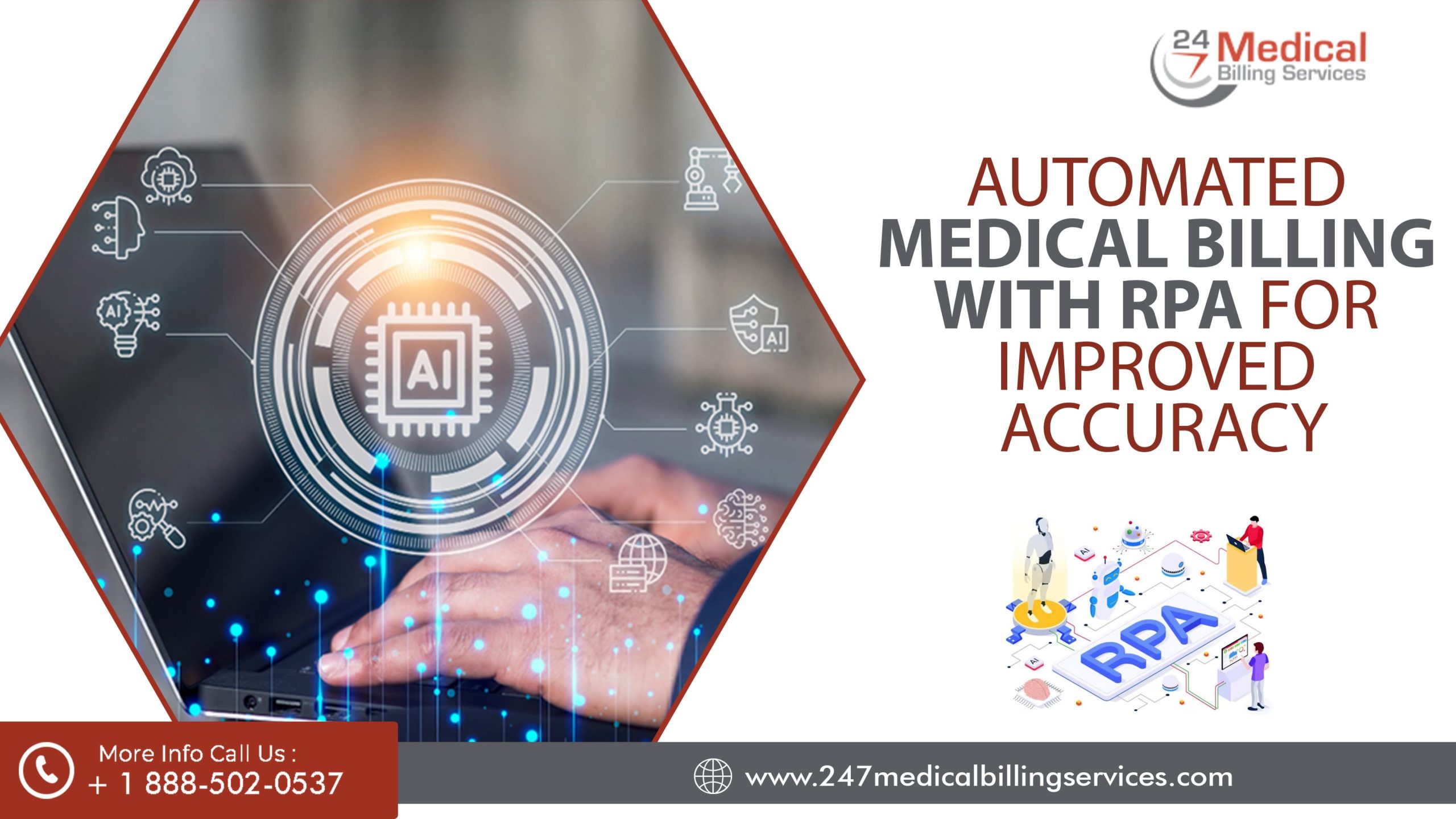
Automated Medical Billing with RPA for Improved Accuracy
Medical billing is a complex and time-consuming process that involves various steps, from patient pre-registration to the completion of a visit. It includes extracting patient data, verifying eligibility, checking medical billing codes, and approving healthcare insurance claims. Traditionally, this entire process was cumbersome and error-prone. However, the advent of automated medical billing using Robotic Process Automation (RPA) has revolutionized this field, ensuring on-time reimbursement and enhancing efficiency.
RPA uses software robots or "bots" to automate repetitive tasks without human intervention. These bots mimic human actions to perform tasks such as data entry, validation, and decision-making in various applications. In the context of medical billing, RPA streamlines processes reduces errors, and expedites reimbursements, leading to improved cash flow and reduced operational costs for healthcare providers.
Is there a need for Medical Billing Automation?
Absolutely yes! Medical billing automation is essential for several reasons:- Lack of Proper Documentation: A significant number of healthcare providers still rely on paper-based medical billing, which is time-consuming and costly. Automation can streamline documentation, reduce errors, and ensure proper data management.
- Incompatible Legacy Systems: Many healthcare providers use outdated billing systems that require manual data entry, leading to inefficiencies and higher costs. Automation modernizes these systems and enhances their efficiency.
- Medical Coding Errors: Incorrect medical coding can lead to claim rejections and delays in reimbursements. Automation reduces coding errors and ensures compliance with regulations.
But what are the components of Medical Billing that can be Automated?
There are several components of the medical billing process that can be automated, including:- Patient Registration: Automation simplifies the registration process by extracting and verifying patient data from registration forms using intelligent data extraction.
- Insurance Eligibility Check & Appointment Scheduling: AI bots can capture patient insurance details, verify eligibility, and schedule appointments, ensuring correct billing and coverage.
- Medical Coding & Compliance Check: Advanced algorithms can analyze medical documents, assign appropriate codes, and ensure compliance with regulations, expediting claims generation.
- Claims Transmission & Adjudication: Automated systems can electronically submit claims, process them error-free, and provide accurate adjudication to inform patients of claim status.
- Patient Statement Generation: Automated patient statements outline services provided and payments due and can be shared with patients via email automation.
- Patient Follow-Up: Automation streamlines bill generation, delivery, and payment reminders, enhancing revenue cycle management.
How Medical Billing Can Be Automated with RPA?
Automation of Data Entry and Validation
One of the primary areas where RPA can significantly enhance medical billing is automating data entry and validation. Manual data entry is often fraught with errors, leading to discrepancies and delays in the billing process. RPA bots can capture data from various sources, such as patient registration forms, medical records, and insurance documents, and input it accurately into the billing system. These bots can also validate the data against predefined rules and criteria, ensuring consistency and accuracy. This not only reduces the time and effort required for manual tasks but also minimizes the risk of errors that can lead to claim rejections and financial losses for healthcare providers.Reduction of Human Error and Compliance Risks
Human error is a significant concern in medical billing, as even small mistakes can lead to claim denials, delays, and compliance issues. RPA mitigates this risk by automating repetitive and rule-based tasks with precision and consistency. Bots follow predefined workflows and rules, ensuring that each billing process is executed correctly and complies with industry standards and regulations such as HIPAA. This level of accuracy reduces the likelihood of errors and enhances compliance, providing healthcare providers with peace of mind that their billing operations are reliable and legally sound. Moreover, RPA can keep up with changing regulations, automatically updating processes as needed to stay compliant.Acceleration of Claim Processing and Reimbursement
The speed at which claims are processed, and reimbursements are received is crucial for maintaining healthy cash flow in healthcare organizations. RPA accelerates this process by automating the submission of claims, their adjudication, and the subsequent posting of payments. By eliminating manual intervention, RPA ensures that claims are submitted promptly and processed quickly by insurance companies. This leads to faster reimbursements, which can significantly improve healthcare providers' financial stability and operational efficiency. Additionally, automated systems can simultaneously handle large volumes of claims, further expediting the reimbursement process and reducing the backlog of pending claims.Elimination of Manual Tasks and Labor Costs
Medical billing involves numerous repetitive tasks that are labor-intensive and time-consuming. RPA can automate these tasks, such as entering patient information, coding medical procedures, and generating invoices, thereby reducing the need for extensive manual labor. This not only cuts down on labor costs but also frees up staff to focus on more strategic and patient-centric activities. Healthcare providers can enhance productivity and improve service quality by reallocating human resources to higher-value tasks. Reducing manual workload also minimizes the stress and fatigue of repetitive tasks, contributing to a more satisfied and efficient workforce.Enhanced Patient Experience and Satisfaction
Patient experience is a critical aspect of healthcare delivery, and the billing process plays a significant role in shaping this experience. RPA improves patient satisfaction by expediting claims processing and ensuring patients receive timely and accurate billing statements. Automated systems reduce the occurrence of billing errors and disputes, leading to a smoother and more transparent billing process. Furthermore, RPA enables personalized patient communication by sending automated reminders for upcoming payments or overdue balances and providing detailed explanations of benefits and coverage. This level of transparency and proactive communication fosters trust and confidence in the healthcare provider, ultimately enhancing patient loyalty and satisfaction.Wrapping Up!
As technologies continue to evolve, the capabilities of automated medical billing will only expand. Implementing medical billing automation ensures interoperability between different healthcare IT systems, accurate medical billing, and a better return on investment. RPA, combined with AI technologies, optimizes billing processes, enhances decision-making, and improves patient outcomes. By embracing automation and digital transformation, healthcare providers can achieve greater efficiency, accuracy, and cost savings, ultimately transforming the healthcare industry.

.png)